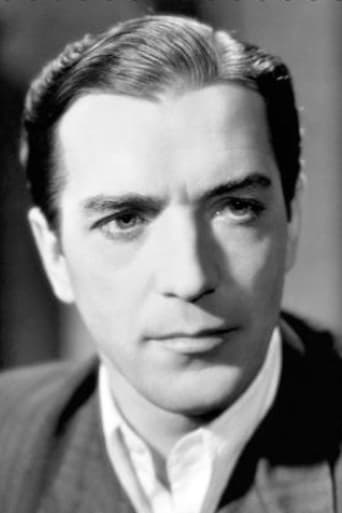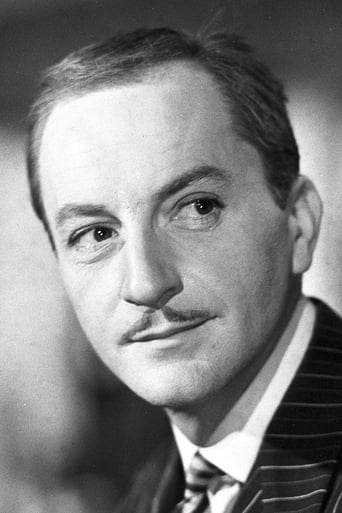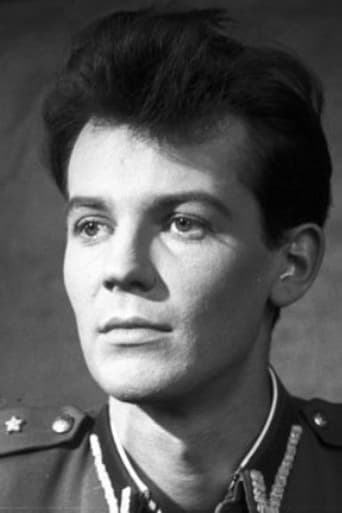

Lotna (1966)
Set in the beginning of Wold War II, when the Polish cavalry still fought with lances against German troops. LOTNA is about a white thoroughbred horse that passed through various hands in a military outfit.
Watch Trailer
Cast


Reviews
This is a must-see and one of the best documentaries - and films - of this year.
The acting in this movie is really good.
The movie's not perfect, but it sticks the landing of its message. It was engaging - thrilling at times - and I personally thought it was a great time.
The story, direction, characters, and writing/dialogue is akin to taking a tranquilizer shot to the neck, but everything else was so well done.
A horse. the symbols. the colors. and the war. mixture of themes and images defining the war films from the East of "50. and reflection about fatherland, heroism, illusion and sacrifice, obsession and death. the force of images as the lead pillar of a construction in which the irony and sadness, the traces of fatum and crumbs of magic are together. a portrait of a world. familiar and strange in same measure. at the first sigh, one of many war films from the same period. and far by great movies of Wajda. in fact, one of pictures of a fall of an universe. cold, precise, bitter.
Andrzej Wajda directs "Lotna". Set during the second world war, the film revolves around "Lotna" ("The Swift One"), a Polish war horse who is passed down from soldier to soldier, like the winchester in Anthony Mann's "Winchester '73", as his owners are systematically killed in combat by invading German forces. It soon becomes clear that the horse, in Wajda's hands, becomes a shifting symbol: initially that of patriotism and defiance, but then finally death, betrayal and defeat. By the film's end the horse has been blamed, due to her conspicuous markings, for the Germans discovering a band of hiding Polish troops.The film is episodic, the horse introducing us to various sub-characters and sub-plots as it ambles across war-torn Europe. Moments of horror and violence at times give way to more light-hearted sequences – a budding romance, a village priest taming the horse etc – but the film's overall arc, like most of Wajda's works, is that of tragedy. The film's aesthetic itself seems to move progressively away from colour, to muted browns and greens, to murky blacks and whites; life sucked out of Europe until the landscape seems to match the horse's own complexion.Though set in the Second World War, "Lotna" at times feels more like a fable caught out of time, Wajda's tone frequently mystical, hallucinatory, surreal and even satirical. The film is often viewed as a piece of Polish propaganda (thanks largely to dreamy sequences in which Wajda's epic tracking shots glide with Polish horses as they gloriously charge German tanks), but Wajda is doing something completely different. Indeed, what the horse does is crystallise Poland's own backwardness and vulnerabilities, slowly shifting away from a figure which leads and inspires to one which charges uselessly with an outdated calvary towards fleets of German tanks. Jean Renoir's "La Grande Illusion" seems to be the chief influence, the horse and her original owners representative of a dying aristocracy whose entrenched Old Order fizzles out. Lotna broken leg coincides with Poland's end. So a sense of defeat and despair suffuses the film, a mood which Wajda contrasts with shots and compositions designed to conjure up glorious images of Polish soldiers, men and animals. Frequently Wajda has his characters loom proud, preternaturally or heroically over his camera, before "pulling" back to reveal dark, wet or smoke filled skies. Like Jancso's "The Red and the White", its a parodic marriage of patriotism with a more dispassionate, distanced view of conflict. The film's famous tracking shot, in which Polish horses charge German tanks, is less a moment of national pride than the wedlock of stupidity, nationalism and slaughter. Like "Kanal", another war-themed Wajda film accused of being "patriotic" (it's not), "Lotna" is devoid of anti-German sentiment. Wajda's aim is always closer to home.Wajda's films tend to be heavy with visual echoes and symbolism. It's the same case with "Lotna", shots of white veils contrasted, the spasms of a horse mirrored to that of twitching fish etc. In each case the effect is that of a movement toward oblivion. The film's acting has been criticised; during this period, Wajda favoured somewhat stylised, grotesque performances.7.9/10 - Not as good as Wajda's war trilogy ("Ashes and Diamonds", "Pokolenie", "Kanal"). "Lotna", as well as "Winchester '73" and "Lassie Come Home", would form the basis of Spielberg's "War Horse". Worth two viewings.
Evidentally this is sort of a "lost" film. The DVD copy is half in color, and half in tinted black and white. No previous comments on IMDb or Netflix. An astounding circumstance for a film of this high quality by a known director. This an iconic tale of a beautiful horse that has several owners, sort of a mixture of "Black Beauty" and "The Red Shoes". There's an interesting love triangle among the humans, set in early World War II, I think. The white of a bride's dress is paralleled with the horse, but I'm not sure of the precise meaning outside of pure imagery. There is much beauty in the cinematography and the staging, with lovely framing and intriguing tracking shots. Reminiscent of a Powell/Pressburger film both in its pictorial impact and the cold sentimentality (how's that for an oxymoron?) of its story. Maybe a masterpiece, I'm not sure, and well worth seeing.




